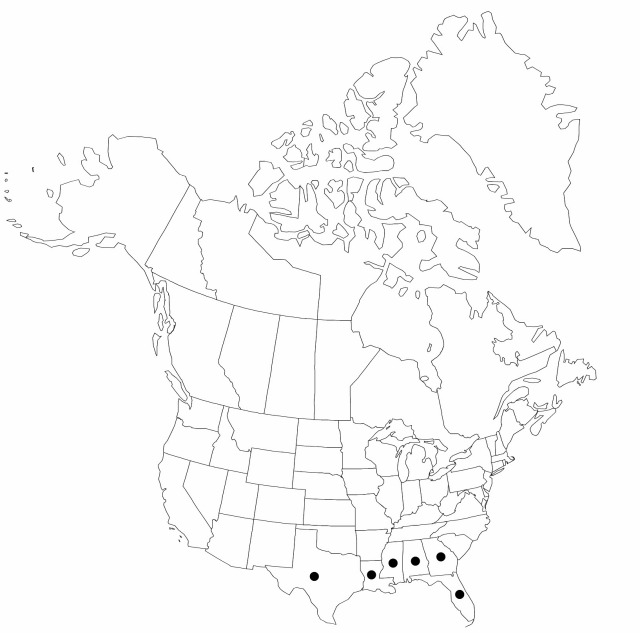Fuirena scirpoidea
Fl. Bor.-Amer. 1: 38, plate 7. 1803.
Herbs perennial, rhizomatous, 20–60 cm, glabrous; rhizomes elongate, often forking, scaly; corms absent. Culms spaced along rhizome, erect, slender, wandlike, subterete, nodes swollen. Leaves mostly sheath; principal blades cusplike, thickened, rarely over 4 mm. Inflorescences strictly terminal; spikelets 1 or 2–5, sessile in clusters, exceeding short-linear subtending bract. Spikelets ovoid to lance-ovoid, 7–10(–15) mm, apex blunt; fertile scales ovate to obovate, 2.5–3.5 mm, ciliate; mucro erect, 1/2 or less length of scale; median ribs mostly 5. Flowers: perianth bristles equaling or slightly longer than perianth stipes, retrorsely barbellate; perianth blades ovate, as long as claws, 2–2.5 mm, base thinner, 3-ribbed, apex compressed-conic, apiculate; anthers linear-oblong, 2 mm. Achenes: body angles pale, wirelike, faces lustrous red-brown or chestnut brown, 1 mm; beak narrow, linear, distally papillate or scabridulous. 2n = 46.
Phenology: Fruiting summer–fall.
Habitat: Sands and peats, inner edges of brackish marsh, interdunal swales, mostly along seacoast
Elevation: 0–100 m
Distribution

Ala., Fla., Ga., La., Miss., Tex., West Indies (Cuba).
Discussion
Selected References
None.
